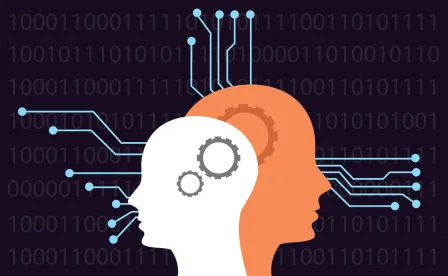On October 28, 2021, Equal Employment Opportunity Commission (“EEOC”) Chair Charlotte A. Burrows announced that the agency is launching an initiative to ensure that artificial intelligence (“AI”) used at all stages of the employment cycle comply with federal anti-discrimination laws. The EEOC also issued a press release on that same day outlining the agency’s plans under the new initiative.
The announcement comes as employers are increasingly using AI and other algorithmic tools to automate their recruiting process. From using “chatbots” to communicate with job applicants to schedule interviews, ask screening questions, and even using AI to review and screen resumes, the proliferation of these tools has steadily grown in recent years.
As these AI tools have enjoyed wider adoption, researchers have raised concerns that this technology has the potential to generate biased or discriminatory results due to, inter alia, its reliance on datasets that may reflect past biases and biases which may be embedded in the coding process. In response to these concerns, as early as October 2019 the EEOC was investigating at least two cases claiming that algorithms underlying AI tools used by employers were having a discriminatory impact. Similarly, on December 8, 2020, several U.S. senators sent a joint letter to then-Chair of the Equal Employment Opportunity Commission inquiring about whether the agency had ever used its authority to “investigate and/or enforce against discrimination related to the use of hiring technologies.” Likewise, the letter also inquired about, among other things, the agency’s authority “to study and investigate the development and design, use, and impacts of hiring technologies absent an individual charge of discrimination.” As recently as September 1, 2021, EEOC Commissioner Keith Sonderling stated in an interview that employers using these AI tools require guidance from the EEOC to combat the risk of potential discrimination.
Per the EEOC’s press release, the agency plans to:
-
“establish an internal working group to coordinate the agency’s work on the initiative;”
-
launch a series of “listening sessions with key stakeholders” regarding AI tools and their impact in employment;
-
collect information regarding the “adoption, design, and impact of hiring and other employment-related technologies;”
-
“[i]dentify promising practices;” and
-
publish technical assistance to “provide guidance on algorithmic fairness and the use of AI in employment decisions.”
Further, EEOC Chair Burrows commented on the initiative, noting that “[w]hile the technology may be evolving, anti-discrimination laws still apply. The EEOC will address workplace bias that violates federal civil rights laws regardless of the form it takes and the agency is committed to helping employers understand how to benefit from these new technologies while also complying with employment laws.”
While governments at all levels have slowly begun to regulate the use of this technology by employers, the EEOC’s initiative will be the first sweeping attempt by the agency to examine the technology and enforce compliance with currently existing anti-discrimination laws such as Title VII of the Civil Rights Act, the Americans with Disabilities Act, and the Age Discrimination in Employment Act. Employers utilizing these new tools should carefully audit them to ensure that this technology is not creating discriminatory outcomes. Likewise, employers must remain closely apprised of any new developments from the EEOC and local, state, and federal legislatures and agencies as the trend toward regulation continues.





 />i
/>i

